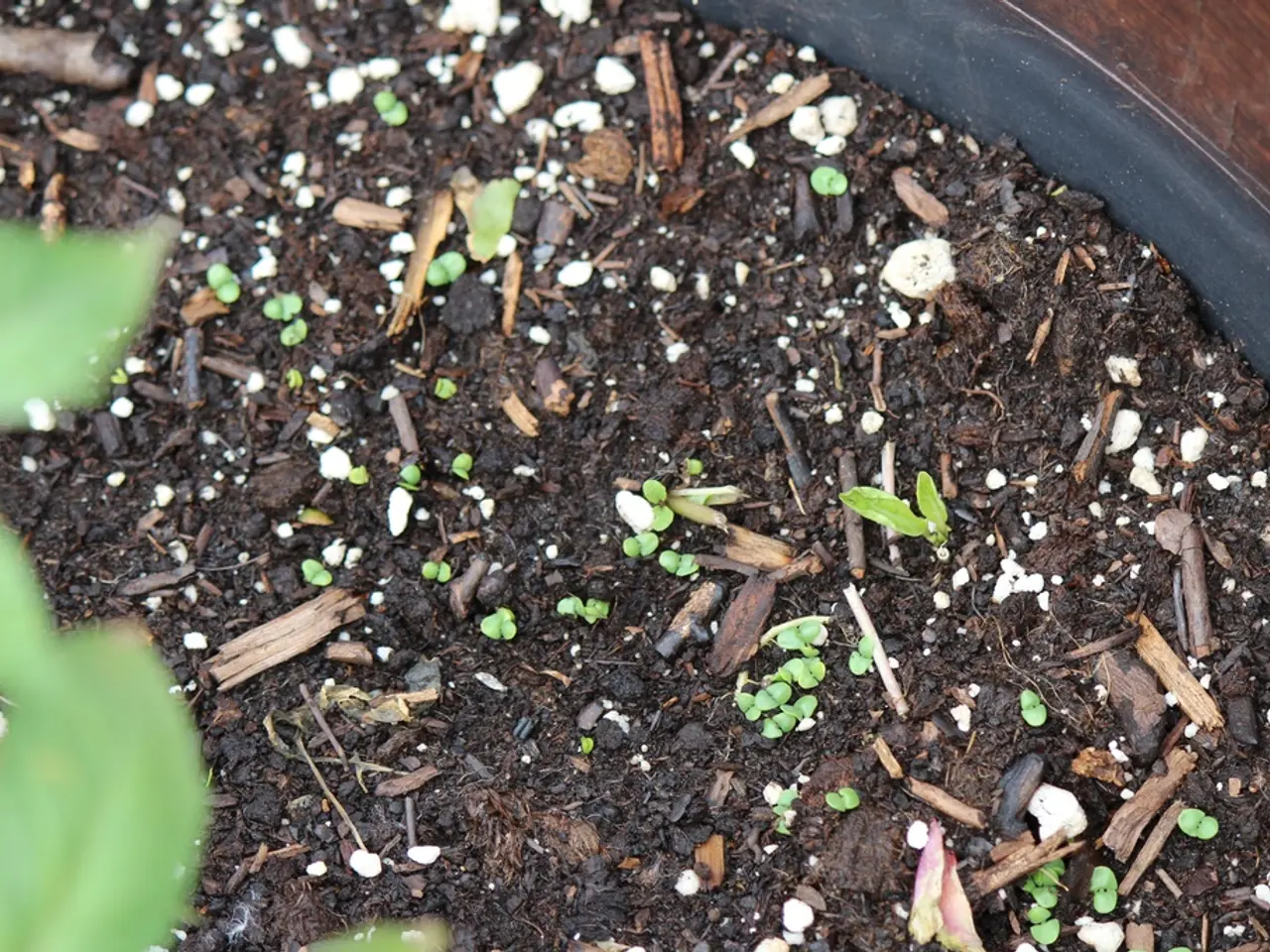Essential Elements for Soil: The Keys to Plant Growth and Development (Macronutrients)
In the world of agriculture, understanding the functions of essential macronutrients is key to fostering healthy plant growth and maximising crop yield. Here's a breakdown of the roles these vital elements play in plant life.
Nitrogen (N), a primary macronutrient, is crucial for the synthesis of amino acids, proteins, enzymes, and chlorophyll. It drives vegetative growth and is essential in photosynthesis and overall plant metabolism.
Phosphorus (P), another essential macronutrient, supports energy transfer within the plant through ATP, nucleic acids formation, root development, and flowering. Phosphorus aids genetic material synthesis and improves early plant growth and maturity.
Potassium (K), a key regulator of water balance in plants, helps maintain turgor pressure and prevent water loss by regulating the opening and closing of stomata. Potassium functions as an activator for numerous enzymes, including those involved in protein synthesis, sugar transport, and nitrogen and carbon metabolism.
Calcium (Ca), a secondary macronutrient, supports cell wall structure and stability, acts in cell signaling and membrane function, and aids in root development and nutrient uptake. Calcium is also involved in the activation of certain enzymes and the coordination of cellular activities.
Magnesium (Mg), a core component of chlorophyll, the pigment that gives plants their green colour, is essential for photosynthesis. Moreover, magnesium is vital for enzyme activation and energy metabolism, nucleic acid synthesis and stabilisation, phosphate buffering and nutrient transport, photosynthetic electron transport, cell growth and structure, and stress tolerance and resistance.
Sulfur (S) aids protein synthesis and enhances enzyme function and plant vigor, being an integral part of some amino acids, vitamins, and cofactors.
Additional macronutrients and micronutrients like copper, molybdenum, chlorine, and nickel have specific roles. Copper, for instance, acts as an enzymatic activator involved in photosynthesis, respiration, lignin biosynthesis, and cell wall metabolism. Molybdenum facilitates conversion of nitrates into usable forms and is essential for nitrogen fixation in legumes. Chlorine regulates osmotic balance, photosynthesis, water relations, and disease resistance, while nickel is a cofactor for the urease enzyme, vital for nitrogen metabolism and efficient nutrient utilization.
Overall, macronutrients enable key physiological processes such as protein and cell formation, chlorophyll production, enzyme activation, root development, and disease resistance, thereby directly influencing plant growth, health, and crop yield. Deficiencies or excesses can negatively impact plant life, emphasizing the importance of balanced nutrient supply.
Furthermore, magnesium enhances a plant's tolerance to various stress conditions, including drought, salinity, and high temperatures. Calcium improves plant vigour, activating the formation of roots and their growth, and it contributes to the transportation of minerals. Potassium is an essential macronutrient for plants, aiding in their growth, metabolism, and defence against environmental stressors.
This information is based on recent agricultural guides and educational sources from 2025, highlighting the importance of a well-rounded nutrient supply for optimal plant growth and development.
In the realm of health-and-wellness, a balanced intake of macronutrients such as protein, carbohydrates, and fats is vital for supporting various physiological processes, just as essential macronutrients like nitrogen, phosphorus, potassium, calcium, and magnesium are crucial for plant growth.
An active lifestyle that includes fitness-and-exercise, proper nutrition, and adequate sleep can delay the aging process, mirroring the way well-nourished plants exhibit improved growth and maturity.




